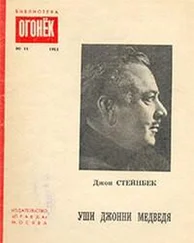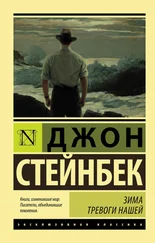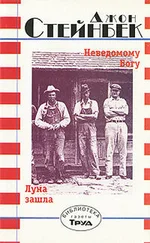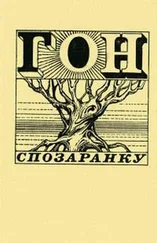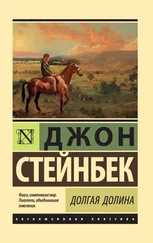Джон Стейнбек - Cup of Gold [Золотая чаша]
Здесь есть возможность читать онлайн «Джон Стейнбек - Cup of Gold [Золотая чаша]» — ознакомительный отрывок электронной книги совершенно бесплатно, а после прочтения отрывка купить полную версию. В некоторых случаях можно слушать аудио, скачать через торрент в формате fb2 и присутствует краткое содержание. Год выпуска: 1929, Жанр: Прочие приключения, на английском языке. Описание произведения, (предисловие) а так же отзывы посетителей доступны на портале библиотеки ЛибКат.
- Название:Cup of Gold [Золотая чаша]
- Автор:
- Жанр:
- Год:1929
- ISBN:нет данных
- Рейтинг книги:5 / 5. Голосов: 1
-
Избранное:Добавить в избранное
- Отзывы:
-
Ваша оценка:
- 100
- 1
- 2
- 3
- 4
- 5
Cup of Gold [Золотая чаша]: краткое содержание, описание и аннотация
Предлагаем к чтению аннотацию, описание, краткое содержание или предисловие (зависит от того, что написал сам автор книги «Cup of Gold [Золотая чаша]»). Если вы не нашли необходимую информацию о книге — напишите в комментариях, мы постараемся отыскать её.
Cup of Gold [Золотая чаша] — читать онлайн ознакомительный отрывок
Ниже представлен текст книги, разбитый по страницам. Система сохранения места последней прочитанной страницы, позволяет с удобством читать онлайн бесплатно книгу «Cup of Gold [Золотая чаша]», без необходимости каждый раз заново искать на чём Вы остановились. Поставьте закладку, и сможете в любой момент перейти на страницу, на которой закончили чтение.
Интервал:
Закладка:
And Pizarro forced the broken Inca people into the mines with whips.
A hundred captains led little bands of soldiers to the east and southeast where the fierce Indians of Darien lived in trees and caves. Here the Spanish men found nose rings and anklets and god-sticks and eagle quills filled with gold. Everything was dumped into sacks and carried on mule-back to Panama.
When all the graves had been robbed of golden ornaments, even the wild Indians dug in the earth by authority of the whips.
The ships of Spain discovered little islands to the westward in whose shallow bays pearls might be found if only one dived deep enough; and in a little time the dull folk of the islands were jumping into a sea where sharks lived. And bags of pearls found their way to Panama.
All the long workings, the craftsmanship in precious things, came at last to Panama, where the melting pots received them like glowing gourmands and transformed them to thick golden logs. The warehouses were piled high with the sticks of gold, waiting for the treasure fleet to sail for Spain. At times there were bars of silver tiered up in the streets for lack of warehouse room, but they were safe from thievery in their weight.
Meanwhile the city grew to be a glorious thing. The wealth of enslaved nations was put to building thousands of fine houses with red roofs and little inset patios where rare secret flowers grew. All the colored arts and comforts of old Europe flew westward to beautify the Panamanian houses at the call of golden lumps.
The first Spaniards to invade the country had been cruel, grasping robbers; but also they were soldiers whom no bloody prospect might frighten. Small bands of them captured the New World with little force save spiritual courage.
But when the peoples of Nicaragua and Peru and Darien had become gangs of whimpering slaves, when there was no danger any more, a different breed of men came to live in Panama. These were the merchants, keenly decisive when there was a farm to be wrested by law from its owner, or when the price of food was raised for outland colonists, but fearful and cowardly when steel was rattling about on steel.
The merchant class soon dominated all the isthmus. Some of the soldiers had died; others grew restless in security and marched away to new, dangerous lands, leaving the battle of foodstuffs and extravagances in the hands of the traders who doled out flour and wine, and gathered, in return, jewels and bars of gold for their coffers. The merchants combined so that all might charge the same high price for food, and with the profits they built their cedar houses roofed with rosy tiles; they dressed their women in foreign silks and were followed about in the streets by bands of retaining slaves.
A company of Genoese slave dealers came to the city and built a large warehouse for their merchandise.
In it were tiers of cages where the black men sat until they were brought into the light to be felt over and bargained for.
It was a lovely city, Panama. Two thousand great cedarn houses lined its principal streets, and farther from the center were five thousand smaller dwellings for clerks and messengers and paid soldiers of the King. Clustering in the outskirts were innumerable thatched huts where the slaves were quartered. In the center of the town were six churches, two convents, and a tall cathedral, all with full gold services and vestments heavy with jewels. Already two saints had lived and died in Panama-not major saints, perhaps, but of enough importance to make their bones valuable.
One whole section of the city was crowded with the houses and stables and barracks of the King. Here, one- tenth of all the produce of the land was stored, waiting for the next plate fleet, when it would be carried on donkeyback across the isthmus to be loaded on the ship. Panama was supporting thekingdomof Spain-paying for the King's new palaces and wars. Because of the ready money in his treasury, the King gave Panama a seat of dignity. It bore a proud name: The Very Noble and Very Loyal City of Panama. Its rank was made equal with that of Cordova and Seville, for did not its officials wear golden chains of office about their necks? And the King granted to the city a resplendent coat of arms-a shield in a field of gold on the left yoke, and on the right, two caravels and a handful of gray arrows.
Above all was the north star of discovery, while the Lions and Castles of the twin Spanish kingdoms circled around the shield. Truly Panama was one of the greatest cities in the world.
The center of the Cup of Gold was a broad, paved plaza with a raised stand in the middle where music was played in the evening. While it played, the people strolled about, proving their positions by those to whom they spoke; the merchant aristocracy was very tender in its pride. A man might argue over the price of flour like a Jew in the daytime, but at night, in the Plaza, he bowed stiffly to acquaintances not so rich as he, and imperceptibly fawned on those richer.
They had grown soft in their security. The city was considered impregnable. On one side the sea protected it, and there were no foreign ships on the southern ocean anyway; to the landward side were walls and a broad morass which might be flooded in time of danger, making the city a veritable island. In addition, an attacking army must cut its way through the isthmian jungle to approach in force, must wind through narrow passes which might easily be defended by a small body of men. No one considered it possible that any sane leader could dream of the conquest of Panama. And so, when Campeche and Puerto Bello and Maracaibo fell to the buccaneers, the merchants of the Cup of Gold shrugged their shoulders and went about their usual business. It was unfortunate, of course; indeed it was sad that their own countrymen should be so used and robbed-but what could they expect? Their cities were on the wrong ocean. Panama need never think of these disturbances except with pity. God was good, and business-well, terrible; no money any more, and the farmers hanging on to their goods like thieves.
Don Juan Perez de Guzman was Governor of the Cup of Gold-a quiet nobleman whose life was devoted to being a complete gentleman and nothing else. He drilled his little army, changed his uniforms, and looked with care to the marriages of his relatives. He had been a soldier all his life-not a good campaigner, perhaps, but an extremely gallant officer. The communications he wrote to his subordinates were magnificent. His wording of a demand for surrender by an Indian village was above reproach. The people loved their Governor. He dressed so well; he was so proud, yet condescending. They cheered him daily as he clattered down the street with a troop of horse behind him. If there were any apprehension of attack, surely the gallant figure of Don Juan would reassure the people. His were the noblest blood and the richest warehouses in the city.
Thus they lived happily in Panama, going to the green country places when the hot days were in, and returning to the balls and receptions of the town during the rainy season.
And this was the Cup of Gold when Henry Morgan determined on its destruction.
One day the news crept into Panama that the terrible Morgan was coming in conquest. At first there was amused unbelief, but when more messengers came in, the city roused itself to frantic activity. The people rushed to the churches, confessed, kissed relics, and rushed home again. Hundreds of priests marched in procession bearing the Host through the streets. The dark brotherhood fiercely whipped themselves and dragged the heavy cross about for every one to see. The broken walls went unmended; the rusty cannons were not replaced. Don Juan heard mass after mass, spoke to the frenzied people, and suggested a procession of all the priests in the city.
Читать дальшеИнтервал:
Закладка:
Похожие книги на «Cup of Gold [Золотая чаша]»
Представляем Вашему вниманию похожие книги на «Cup of Gold [Золотая чаша]» списком для выбора. Мы отобрали схожую по названию и смыслу литературу в надежде предоставить читателям больше вариантов отыскать новые, интересные, ещё непрочитанные произведения.
Обсуждение, отзывы о книге «Cup of Gold [Золотая чаша]» и просто собственные мнения читателей. Оставьте ваши комментарии, напишите, что Вы думаете о произведении, его смысле или главных героях. Укажите что конкретно понравилось, а что нет, и почему Вы так считаете.
![Джон Стейнбек Cup of Gold [Золотая чаша] обложка книги](/books/181372/dzhon-stejnbek-cup-of-gold-zolotaya-chasha-cover.webp)
